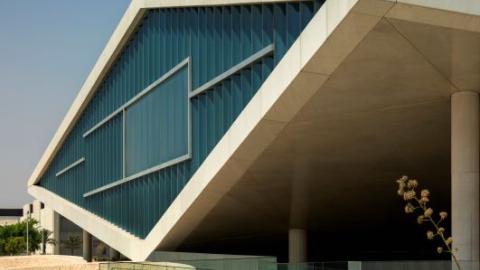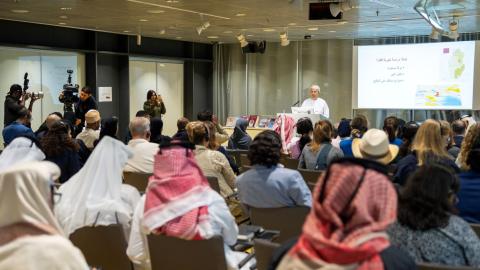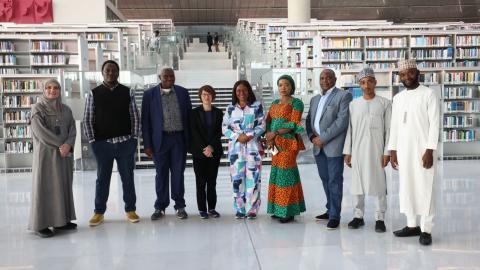
Experts from libraries, cultural institutions and museums from across the Levant participated in a four-day training program, held from 3 to 6 February, organized by Qatar National Library in Jounieh, Lebanon, in cooperation with the Holy Spirit University of Kaslik and the Beit Gazo Center.
The training program, “Practical Methods for the Scientific Examination of Library Objects,” was presented by the Library in its role as the International Federation of Library Associations and Institutions (IFLA) Regional Preservation and Conservation Center (PAC) for Arab Countries and the Middle East. Dr. Antonino Cosentino, Director of Cultural Heritage Science Open Source, and Maxim Nasra, Book Conservation Specialist at the Library, delivered the training, which focused on preserving the legacy of Eastern Churches.
The primary focus of the first two days was technical photography. Conservators take a collection of images using a modified digital camera and different lighting sources and filters, with each image providing unique information about the object under examination.
The identification of pigments in manuscripts and paintings with a portable device that uses reflectance spectroscopy technology engaged participants on day three. The program concluded on day four with practical training on technical photography and reflectance spectroscopy using heritage manuscripts held in the building’s archives. Reflectance spectroscopy is an effective technique in identifying pigments and reveals information vital to preserving historical items.
Stephane Ipert, Preservation and Conservation Manager at the Library, said: “We are delighted that experts from across the Levant region attended the workshop and learned about the latest developments and tools for preserving historical manuscripts. It was an excellent and very rewarding four days for everyone involved.”
He added: “The training will certainly be of benefit to conservators and preservation professionals involved with the important role of conserving valuable documents and manuscripts that capture the heritage of the region. We will continue to work with our partners in the region to share knowledge and expertise with professionals in the field and to raise awareness about the conservation of rare books, manuscripts and documents.”
Fr. Dr. Joseph Moukarzel, Director of Library and Museum at the Holy Spirit University of Kaslik, said: “This workshop provided participants with the knowledge necessary to refine their skills in modern scientific methods and to examine collections in libraries and museums and the impact of documents using modern scientific methods and means.”
Fr. Youssef Dergham, Director of Beit Gazo Center, said: “We are happy to host this workshop in Lebanon, and we have learned valuable information about the use of modern technologies in conserving, restoring and studying manuscripts. The workshop also dealt with the basics of examining materials used for writing, and the rich decorations and colors that are precious and worthy of examination and study. It also focused on the technical skills related to spectroscopy and color, and their relevance in the field of technical examination of documents, manuscripts and books."
As the IFLA Regional PAC Center, Qatar National Library works closely with institutions in the Middle East and North Africa to equip experts with the skills needed to conserve and preserve the rich cultural heritage of Qatar and the region for generations to come.







